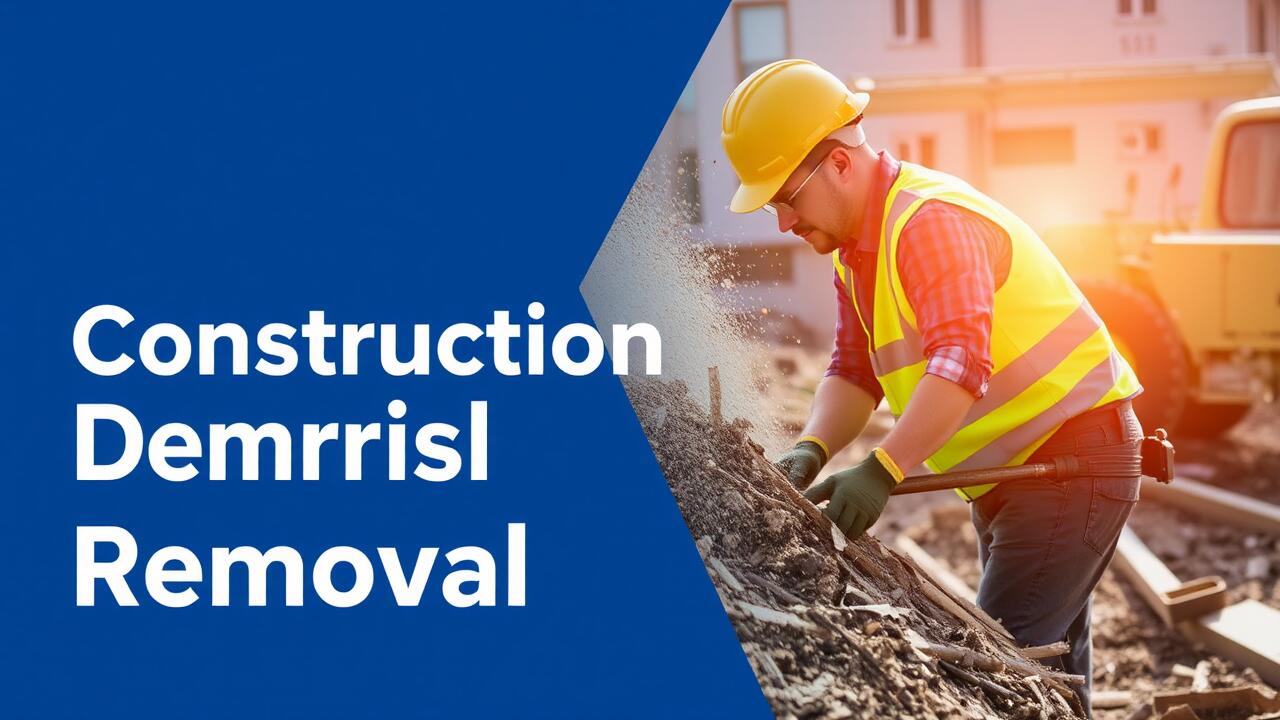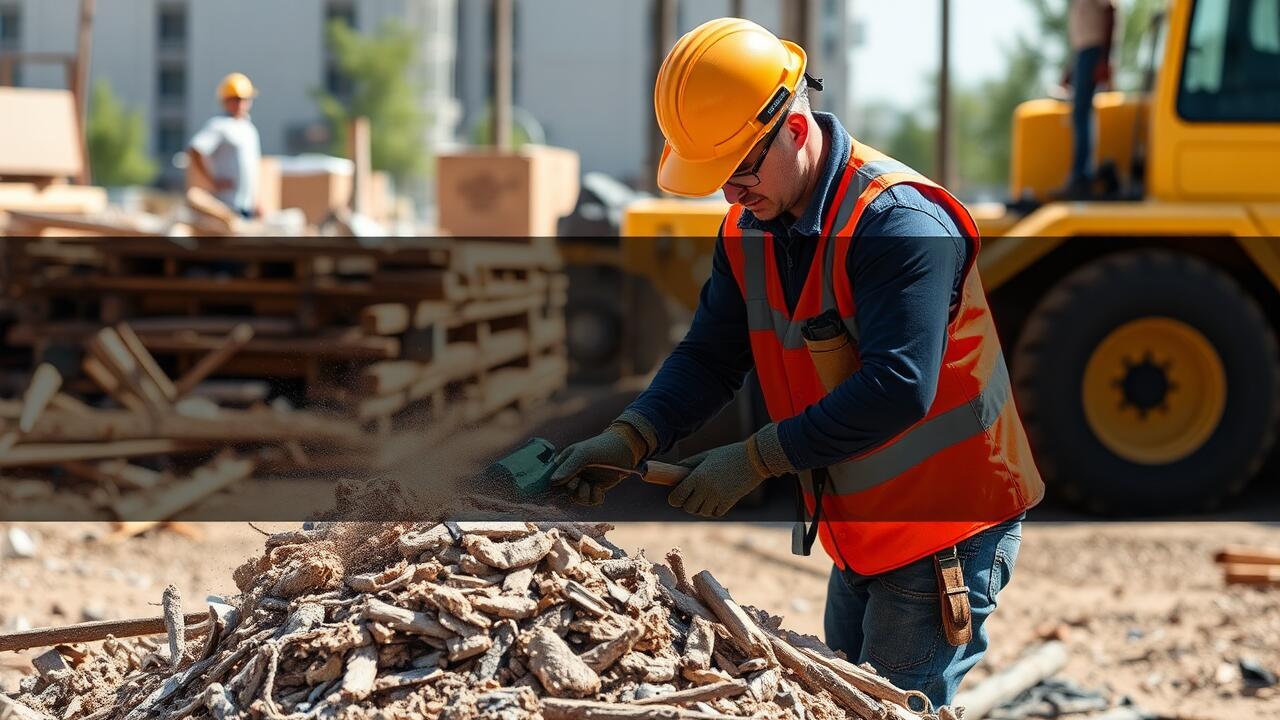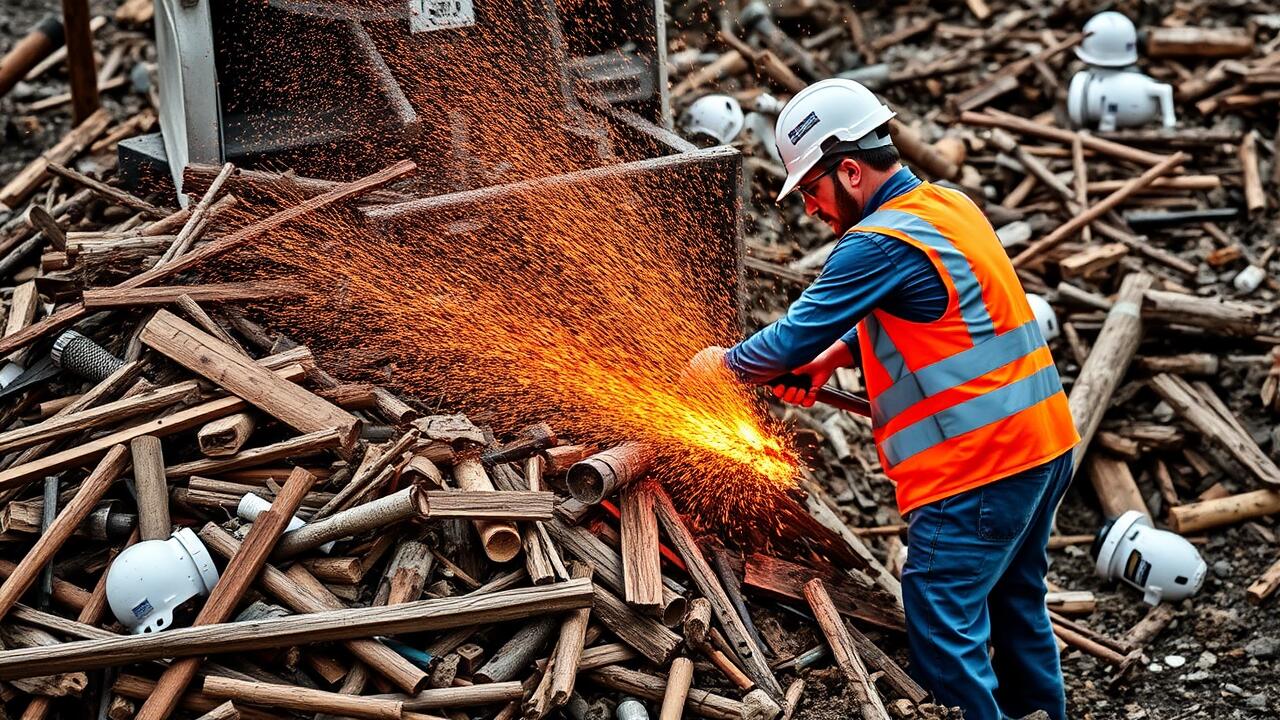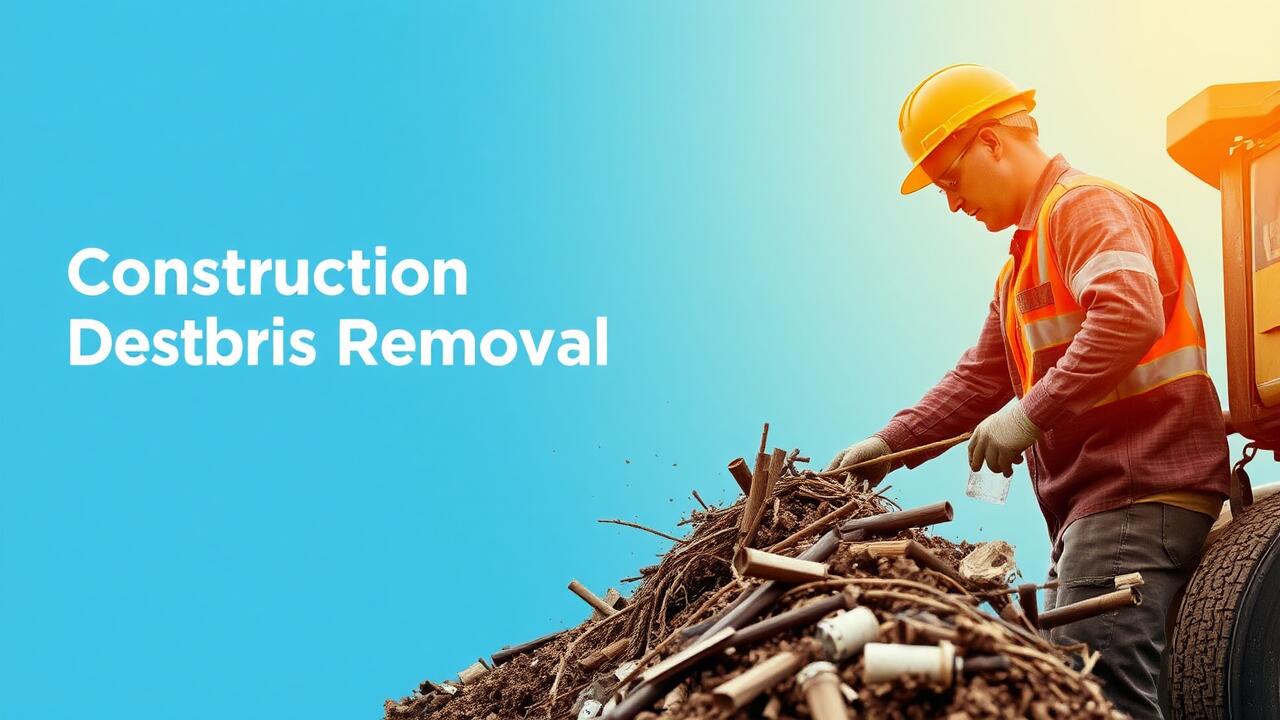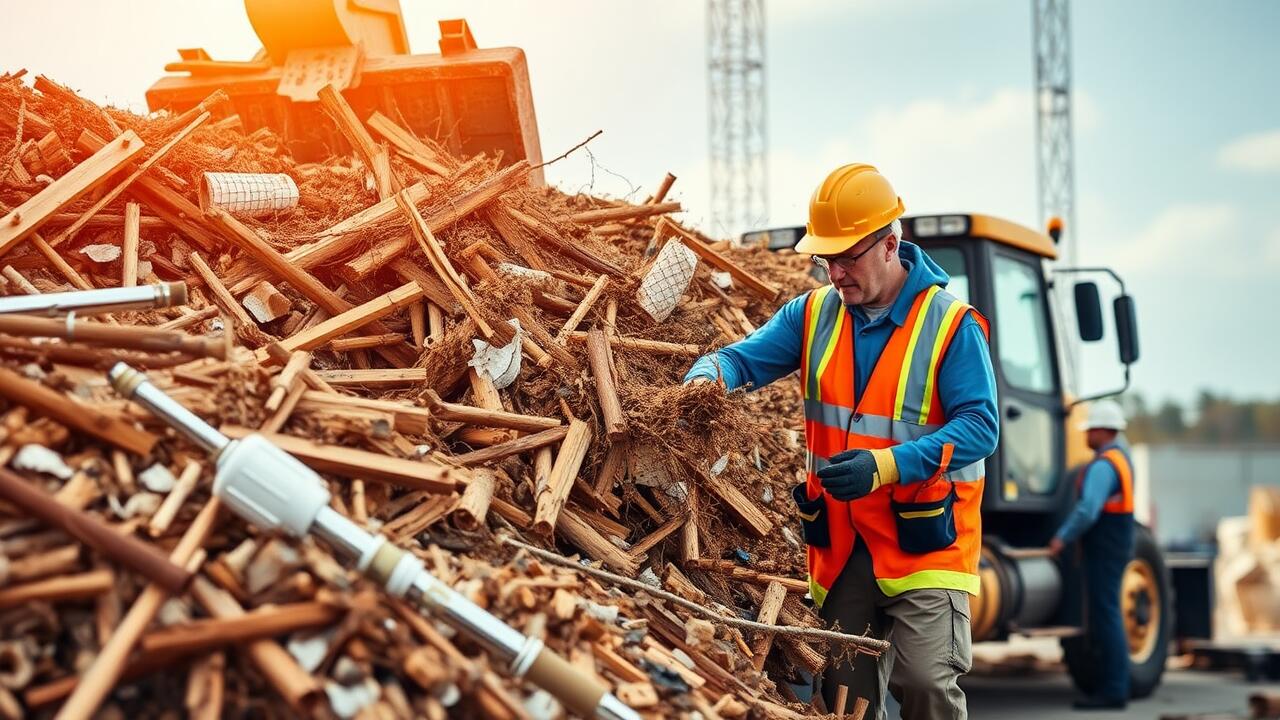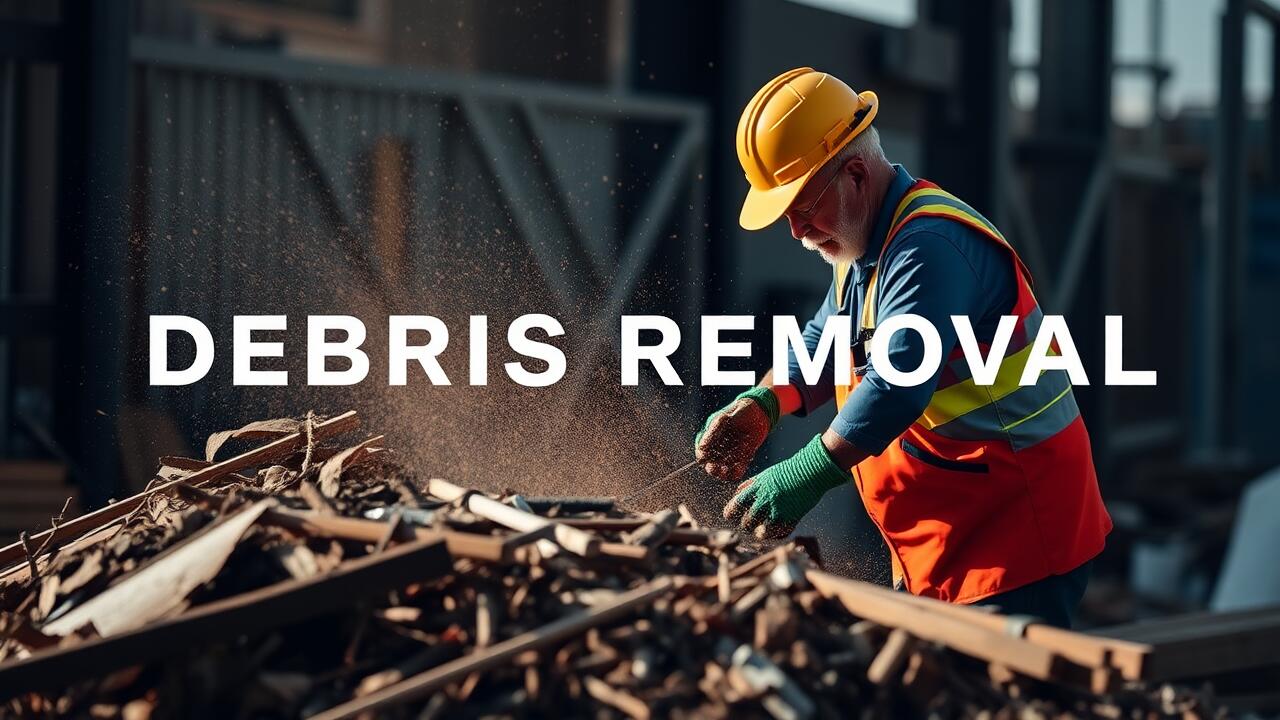
Metal Recycling in Construction
Metal recycling plays a crucial role in construction, as it significantly reduces waste and promotes sustainability. Many types of metals, such as steel, aluminum, and copper, are commonly used in construction projects. These metals can often be recycled multiple times without losing their properties, making them valuable resources. When metal is properly collected and processed, it can be repurposed into new construction materials, reducing the need for virgin resources and minimizing the environmental impact of construction activities.
For effective metal recycling, contractors can implement strategies during the demolition phase to separate ferrous and non-ferrous metals. Establishing designated containers for scrap metal ensures an organized process. In Rio Vista, Phoenix, services like Construction Debris Removal Rio Vista, Phoenix, specialize in efficiently handling and transporting metal debris to recycling facilities. By collaborating with these services, construction teams can ensure that metals are recycled responsibly, contributing to a more sustainable building practice while also potentially lowering disposal costs.
How to Effectively Recycle Metal Scraps
Effective metal recycling is pivotal in reducing environmental impacts and managing construction waste. Sorting metal scraps by type is crucial in maximizing recycling efforts. Aluminum, steel, and copper should be separated, as each metal has a different recycling process and value. Designated bins or containers can streamline this sorting process onsite. By ensuring that metal debris is clean and free from contaminants, recyclers can retrieve maximum value from these materials.
Construction Debris Removal Rio Vista, Phoenix, offers specialized services that promote responsible recycling practices. Engaging professionals in metal recycling not only enhances waste diversion rates but also supports local economies. Collecting and transporting metal scraps efficiently reduces the burden on landfills and ensures that reusable materials are processed appropriately. Proper documentation of the recycling process also aids in compliance with local regulations and sustainability goals.
Gypsum Board Recycling Solutions
Gypsum board, commonly known as drywall, presents unique challenges in recycling due to its composition. Many facilities have developed specialized processes to reclaim gypsum from drywall waste. This involves separating the paper facing from the gypsum core. The reclaimed gypsum can be repurposed for various applications, including as a soil amendment in agriculture or as an ingredient in new drywall production.
In addition to recycling options, proper disposal methods for gypsum board are crucial in managing construction debris. Construction Debris Removal Rio Vista, Phoenix offers services that focus on minimizing landfill waste. They utilize efficient sorting and collection techniques, ensuring that drywall waste is handled responsibly. Collaboration with local recycling centers can further enhance the efficiency of gypsum board recycling efforts.
Techniques for Recycling Drywall
Recycling drywall requires careful handling and specific techniques to manage waste effectively. One approach involves separating the gypsum core from the paper facing. This separation allows for the gypsum to be processed and repurposed, often creating new drywall or cement. Facilities equipped with specialized machinery can grind and dehydrate gypsum, making it suitable for various uses in landscaping or as a soil amendment.
For those not near specialized recycling facilities, local services often provide strategies for handling drywall waste. Engaging in Construction Debris Removal Rio Vista, Phoenix can streamline this process, ensuring that materials are transported to the right recycling centers. Community initiatives may also promote the recycling of drywall, offering resources and guidance to construction teams. Proper disposal and recycling contribute to sustainable practices in the construction industry.
Asphalt and Pavement Recycling
Asphalt and pavement recycling represents a critical aspect of sustainable construction practices. The process involves reclaiming old asphalt materials from resurfacing projects or full depth removals. These collected materials can be processed into recycled asphalt pavement (RAP), which serves as an effective binder for new paving mixtures. Utilizing RAP not only reduces the demand for virgin materials but also helps in minimizing waste sent to landfills, contributing to a more eco-friendly approach in construction.
Construction debris removal in areas like Rio Vista, Phoenix is essential to maintain efficient operations on construction sites. By integrating asphalt recycling into debris removal services, contractors can ensure that valuable resources are reused. Advanced techniques such as milling allow for the extraction of asphalt without extensive environmental disruption. Implementing these recycling practices improves the overall sustainability of construction projects while offering cost-effective solutions for contractors.
Processes for Reclaiming Asphalt
Reclaiming asphalt from construction sites involves several efficient methods, each tailored to optimize materials and minimize waste. The most common process is hot recycling, which entails heating the asphalt mixture until it becomes pliable. This reclaimed asphalt can then be mixed with fresh asphalt binder or aggregate, making it a valuable resource for new road construction. Cold recycling, on the other hand, uses emulsifiers to break down asphalt at lower temperatures, allowing for simpler transportation and application in repair projects.
To ensure that both reclaimed and new asphalt meet quality standards, it is essential to conduct thorough testing and monitoring. Proper analysis helps in assessing the integrity and performance of the recycled material, allowing for the best possible outcomes in infrastructure projects. As part of this sustainable approach, services like Construction Debris Removal Rio Vista, Phoenix, play a vital role by facilitating responsible disposal and recycling practices, ensuring that materials are diverted from landfills and reused effectively.
FAQS
What types of metals can be recycled from construction debris?
Common metals that can be recycled include steel, aluminum, copper, and brass. These materials are often found in structural components, wiring, and fixtures.
How can I find a local metal recycling facility?
You can search online for metal recycling centers in your area, check local directories, or contact your waste management service for recommendations.
What is the best way to recycle gypsum board?
Gypsum board can be recycled by separating it from other materials at the construction site and delivering it to a specialized recycling facility that processes drywall.
Are there specific techniques for recycling asphalt from construction sites?
Yes, techniques such as milling, crushing, and reusing reclaimed asphalt pavement (RAP) are commonly used to recycle asphalt, allowing it to be repurposed in new paving materials.
How does recycling construction debris benefit the environment?
Recycling construction debris reduces landfill waste, conserves natural resources, lowers greenhouse gas emissions, and promotes sustainable building practices.
